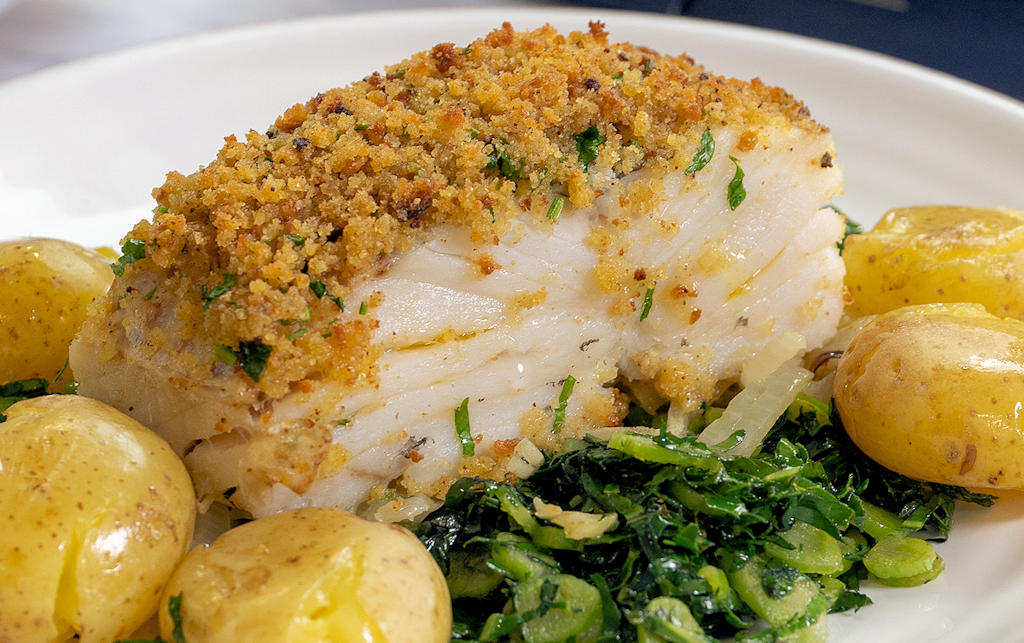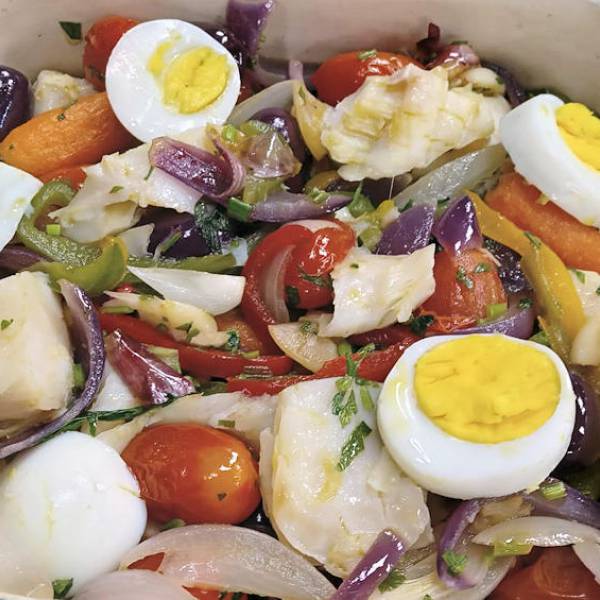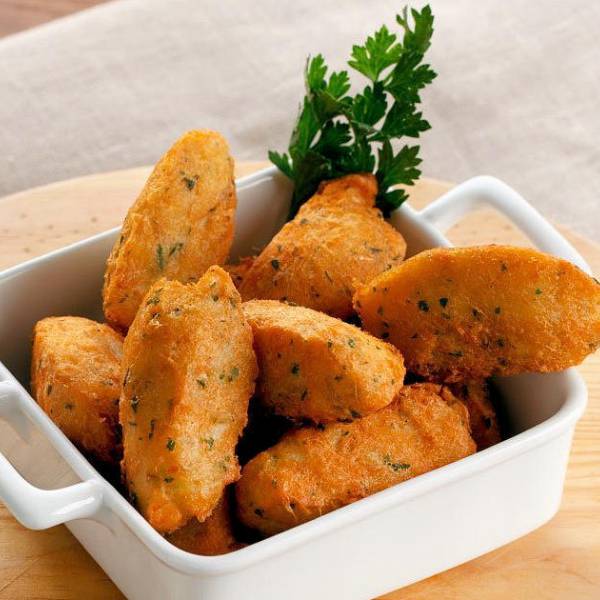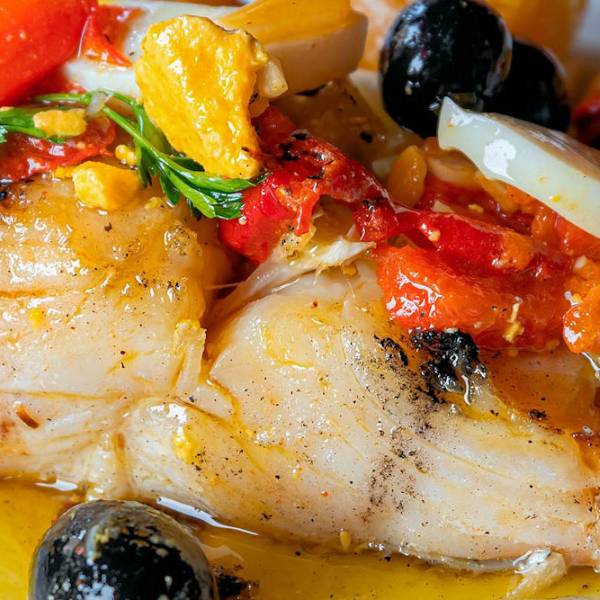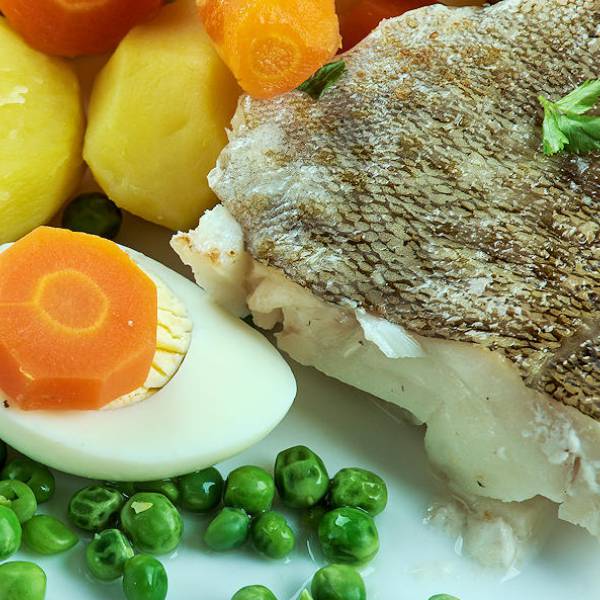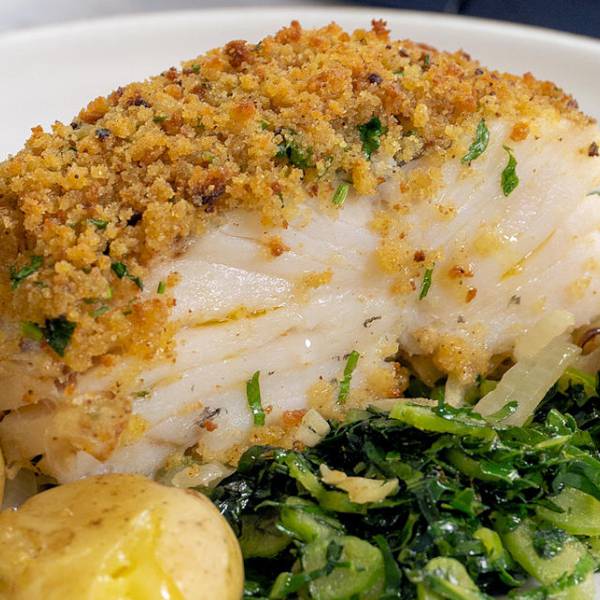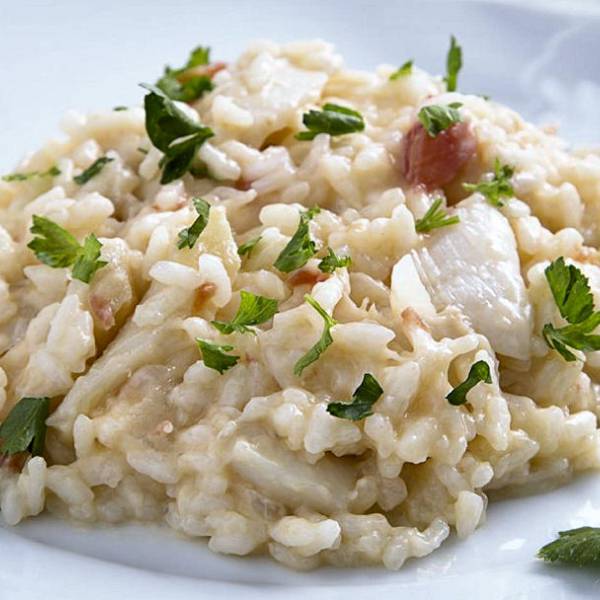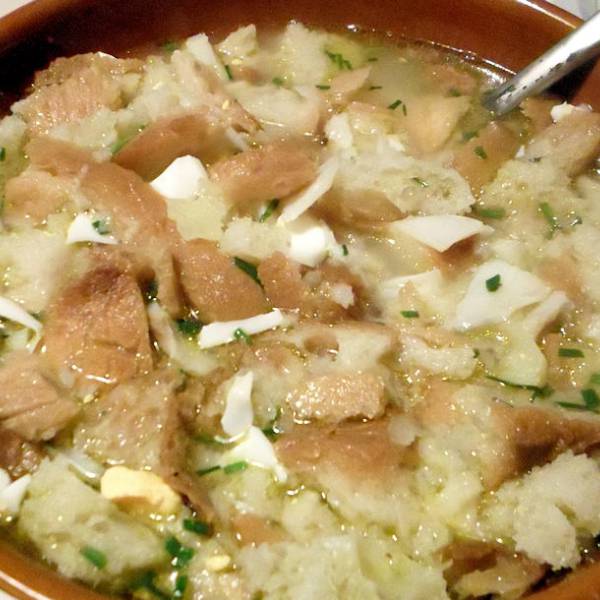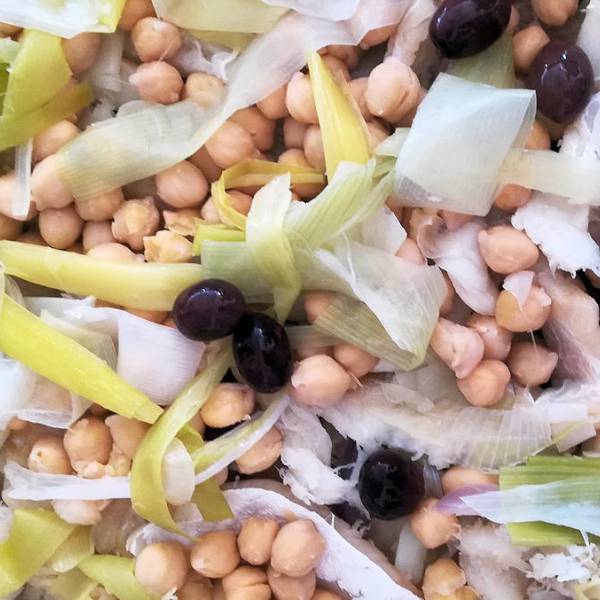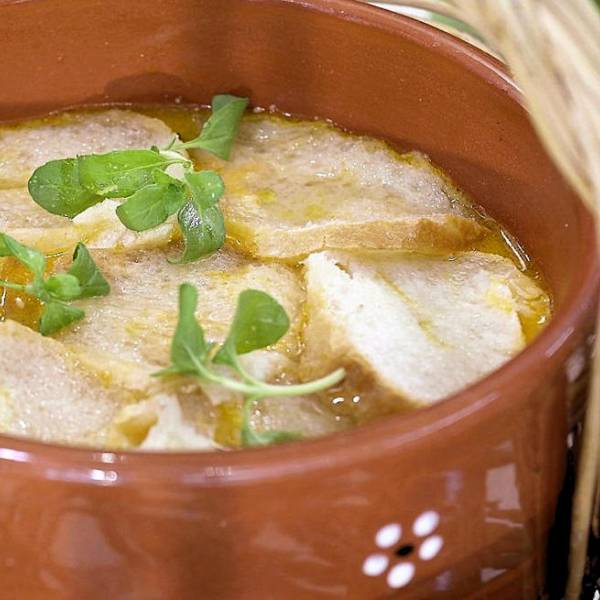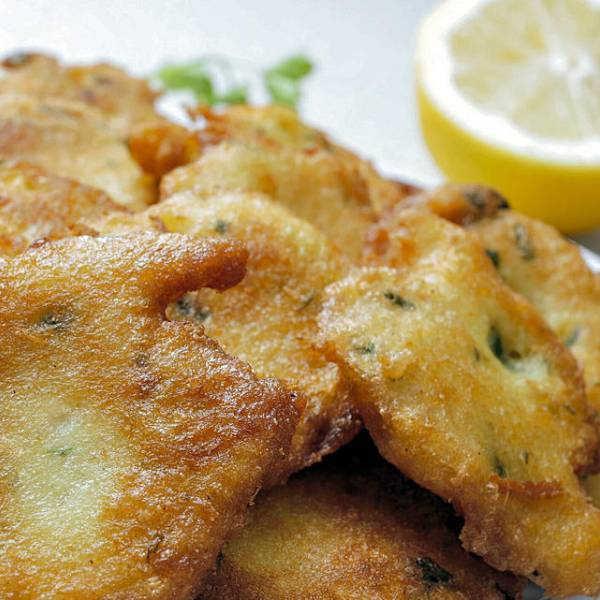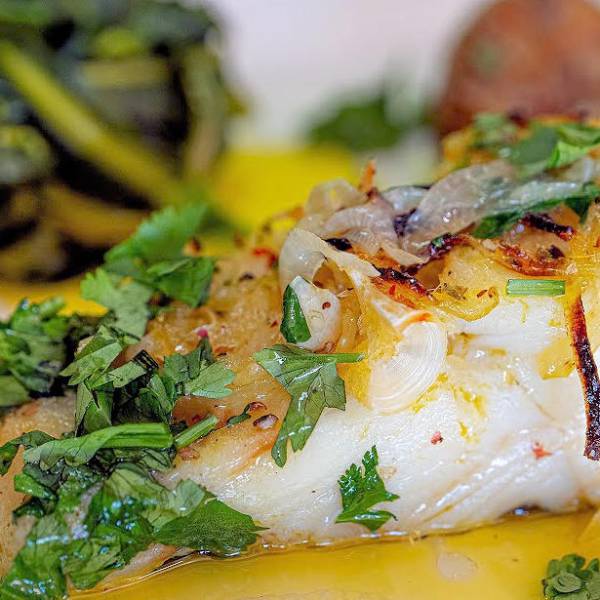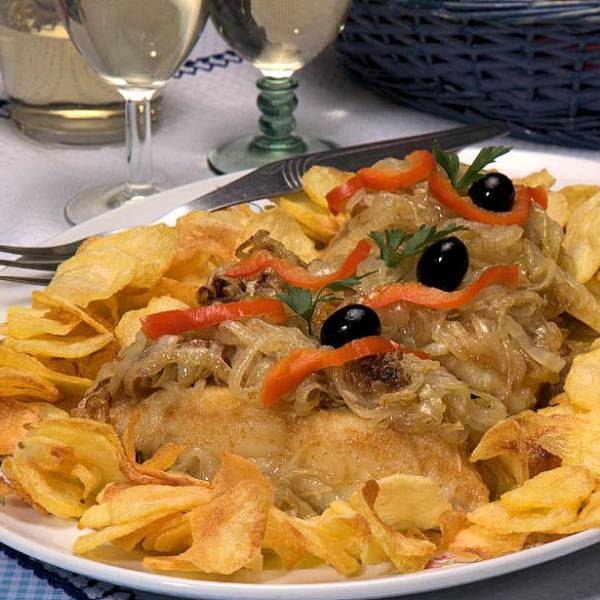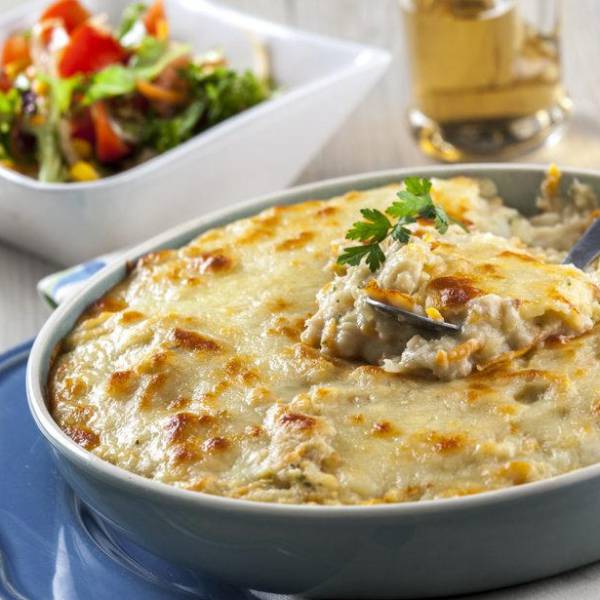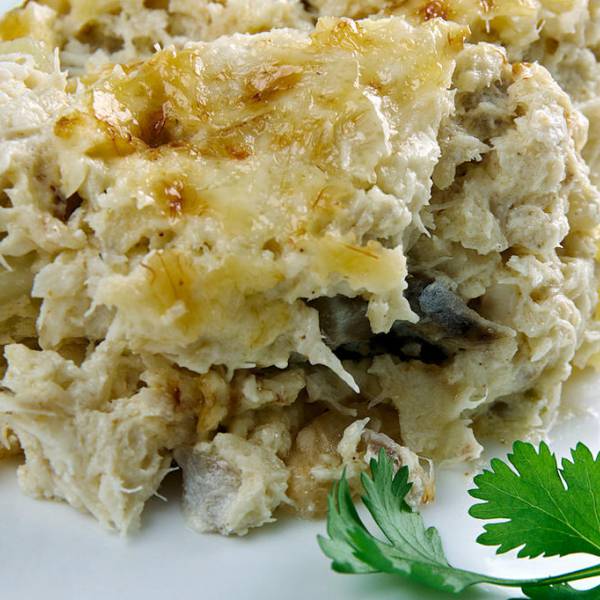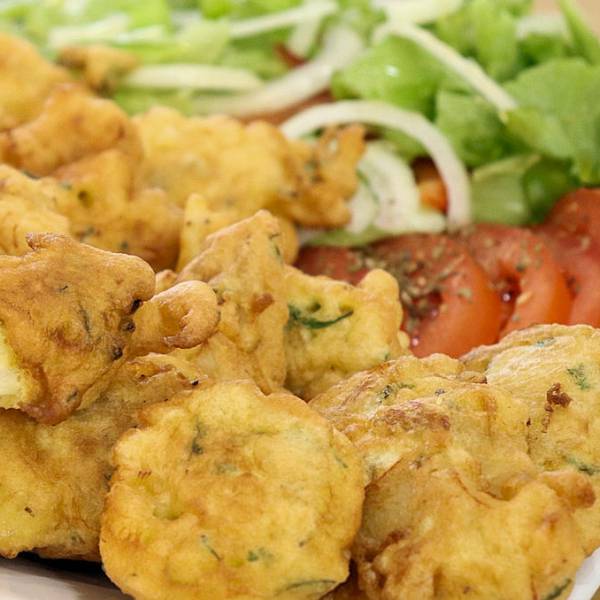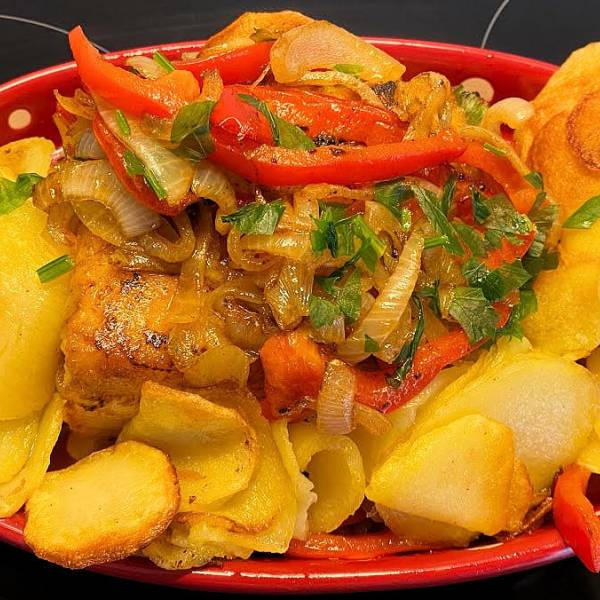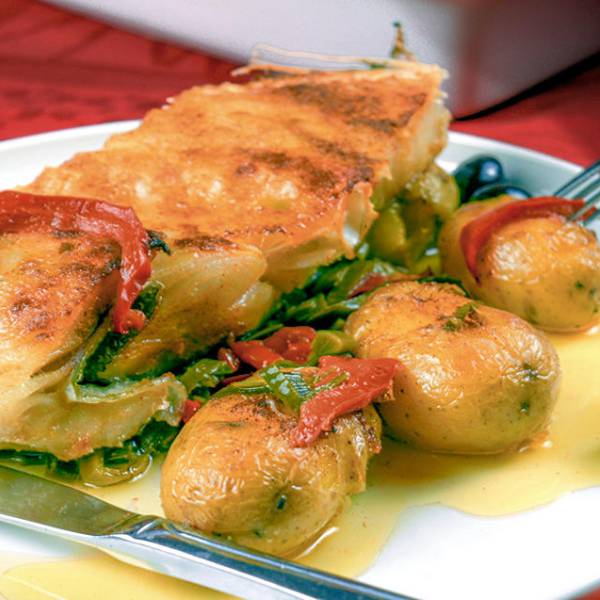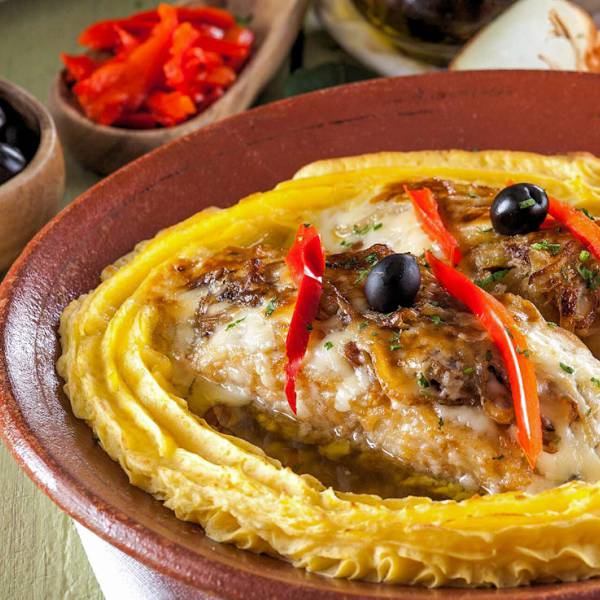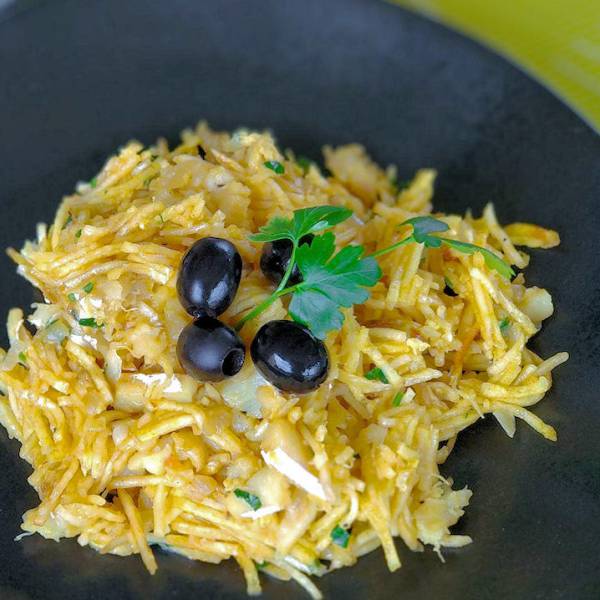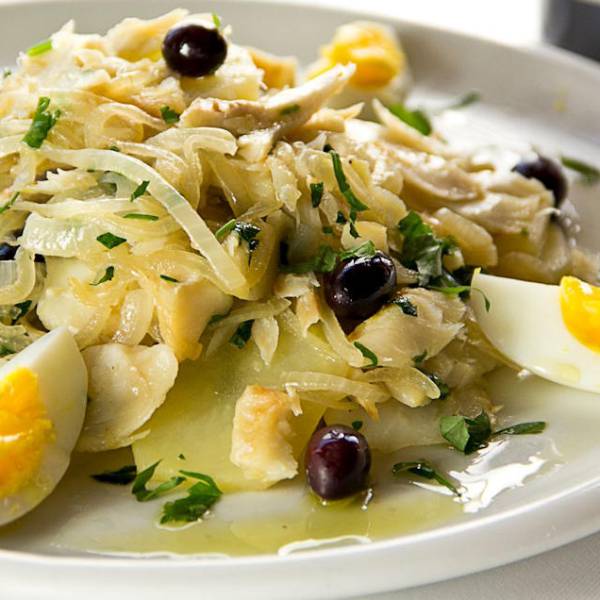Broa, a traditional Portuguese cornbread, made its entrance in the 16th century with the introduction of corn from the Americas. Composed of a blend of wheat flour and cornmeal, broa boasts a dense and moist texture with a subtle hint of sweetness. While commonly enjoyed with soups, cheeses, sausages, or sardines, broa also finds its place as cornbread crumbs - a perfect addition to dishes such as Bacalhau com Broa, providing both crunch and a fragrant aroma.
The combination of bacalhau and broa, though relatively recent, has gained popularity throughout Portugal. It is believed that Bacalhau com Broa originated in the northern regions, where broa is more commonly consumed. The dish likely drew inspiration from other recipes that employ breadcrumb coatings for fish or meat, such as Bacalhau à Gomes de Sá. Bacalhau com Broa may be simple in its preparation and ingredients, but its results are undeniably satisfying and delicious.
To embark on the journey of creating Bacalhau com Broa, one must begin by soaking the salted codfish in water for a minimum of 24 hours, changing the water periodically to remove excess salt. Subsequently, the codfish is cooked in boiling water for approximately 15 minutes, until it becomes tender and easily flakes apart. For an extra infusion of flavor, some may opt to add onion, garlic, bay leaves, and peppercorns to the boiling water. Once cooked, the codfish is drained, and any skin and bones are carefully removed. The fish can then be shredded into smaller pieces or left as larger chunks, depending on personal preference.
Next, potatoes are peeled and sliced into thin rounds using a mandoline or knife. These slices are then fried in hot oil until they acquire a slight golden hue and tender texture - neither too crispy nor too soft. A sprinkle of salt post-frying, followed by draining on paper towels, ensures the removal of excess oil.
Onions and garlic are sliced and sautéed in olive oil until they become soft and translucent, offering a delicate base of flavors. Care is taken not to allow them to brown too much or risk burning.
Roasting red peppers either in the oven or over an open flame until charred and blistered is the next step. Once properly roasted, the peppers are peeled and cut into thin strips. Alternatively, jarred roasted peppers may be used as a time-saving option.
For the final touch, cornbread is crumbled into small pieces. This can be achieved by either using hands or a food processor, resulting in coarse and irregular crumbs, imparting a unique texture and enhancing the overall dish.
Assembly of Bacalhau com Broa involves layering the prepared ingredients in a baking dish. The process begins with an even spread of codfish at the bottom, followed by a layer of potatoes, sautéed onions and garlic, and a scattering of black olives - ideally, Portuguese olives if available. Lastly, a generous layer of cornbread crumbs is sprinkled on top, and a drizzle of olive oil adds the finishing touch. The dish is then baked in a preheated oven at 180°C or 350°F for approximately 15 minutes, or until the crumbs achieve a golden and crispy texture.
Lisbon.vip Recommends
Beyond being a mouthwatering dish, Bacalhau com Broa holds great significance in Portuguese culture and identity. It serves as a reflection of Portugal's history, geography, creativity, and resourcefulness. Bacalhau com Broa showcases the intrinsic connection between the sea and the land within Portuguese cuisine, along with the influences derived from other cultures and continents. Furthermore, it celebrates the diverse and versatile nature of bacalhau, which lends itself to numerous preparations, adapting to different tastes and occasions.
Bacalhau com Broa fosters a sense of togetherness, particularly during Christmas Eve when families and friends gather around the table to share in the festivities. The dish evokes cherished memories, stirs deep emotions, and nourishes both body and soul. It stands as a culinary embodiment of Portugal and its people, representing the essence of the nation.
Bacalhau com Broa is more than a culinary delight; it is a testament to Portugal's cultural heritage, a reminder of the country's rich traditions, and a symbol of its unwavering passion for exceptional cuisine. This extraordinary dish invites you to embark on a gastronomic journey, where the flavors of salted codfish and cornbread come together in harmonious unity - a celebration of Portugal's past, present, and future.


